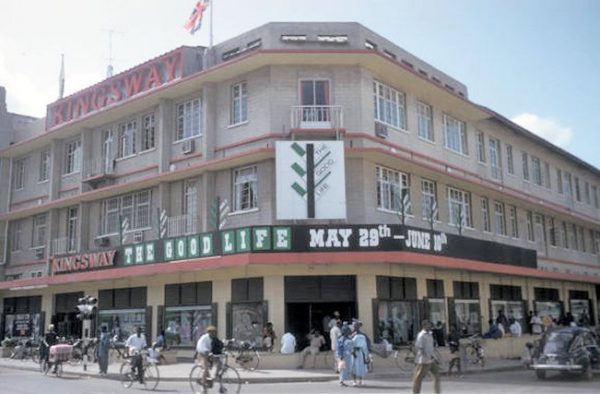Today, practically every first tier city in Nigeria boasts at least one large shopping mall.
The world’s principal urban centres are spoiled for these temples of modern consumerism; and in much of the western world, there have been big product stores for more than a century already. But in this country, the heights of the free market’s material indulgences are only just catching on.
Maybe ‘resurgence’ would be a better one word summary the rapid growth of big retail in these parts. If you were born at some point later than the 1980s, you might think that the Palms, Lekki Novare and SPAR are the first in an all new phenomenon to hit Nigeria. But say this to your parents’ hearing, and they would likely put you in your place with a nostalgia-soaked lecture on the wonders of the department stores in the Lagos of the 1960s or the Ibadan of the 1970s.
Pioneer
Because before there was a Shoprite, there existed a Leventis. Decades prior to the coming of Game, we enjoyed Chellarams. And there was the grand daddy of them all, Kingsway, bringing western style consumer culture to Nigeria’s city dwelling middle and upper classes, and giving memorable visual treats to children and adults alike.
The first Kingsway Store – indeed the pioneer outlet of the country’s first chain of department stores – opened in Lagos in 1948. It was set up by the United African Company (UAC), in a building formerly used by Lagos Stores. UAC had planned to run the chain across West Africa; but of the original stores established in Nigeria, Ghana and Sierra Leone, only the store in Lagos lasted long enough to become profitable (which it did in the 1960s). Following the success of the Lagos store, others were established in Ibadan and Port Harcourt, as well as Apapa, Warri and Ikeja.
Nostalgia
The attractions of Kingsway were many and potent. The stores sold world class products, offered visitors an engrossing ambiance, and gave buyers and spectators new sights to feast their eyes once in a while. They had snacks that tasted so good, they etched a place in their consumers’ memories; they had fine clothes for sale on the hangers; and the groceries were the best that could be bought in the country. There were a lot of sightseers at those stores, with only a fraction of the visitors actually purchasing things. But not everyone could afford Kingsway’s things anyway; they were primarily for the relatively affluent.
The fortunes of large shopping centres are a good indicator of what’s going on with the economy. They were in the mid 2000s, when a resurgent Nigerian economy began to embrace mega consumerism again. It also was in the mid 1980s, as the effects of the global oil glut hit the country hard and forced it into its worst recession yet. That period saw household incomes fall, purchasing power plummet, and consequently, several stores meet their demise. Kingsway Stores sold off its branches across the country, as its parent company, UAC, turned its attention to producing consumables locally, in order to survive the effects of the Structural Adjustment Program.
Although the prosperous days of the 1970s with their big stores, cinemas and art concert are long gone, there’s always a chance to surpass them in positive terms. The expansion of modern supermarket chains across our cities may indicate that this chance is now upon us.


